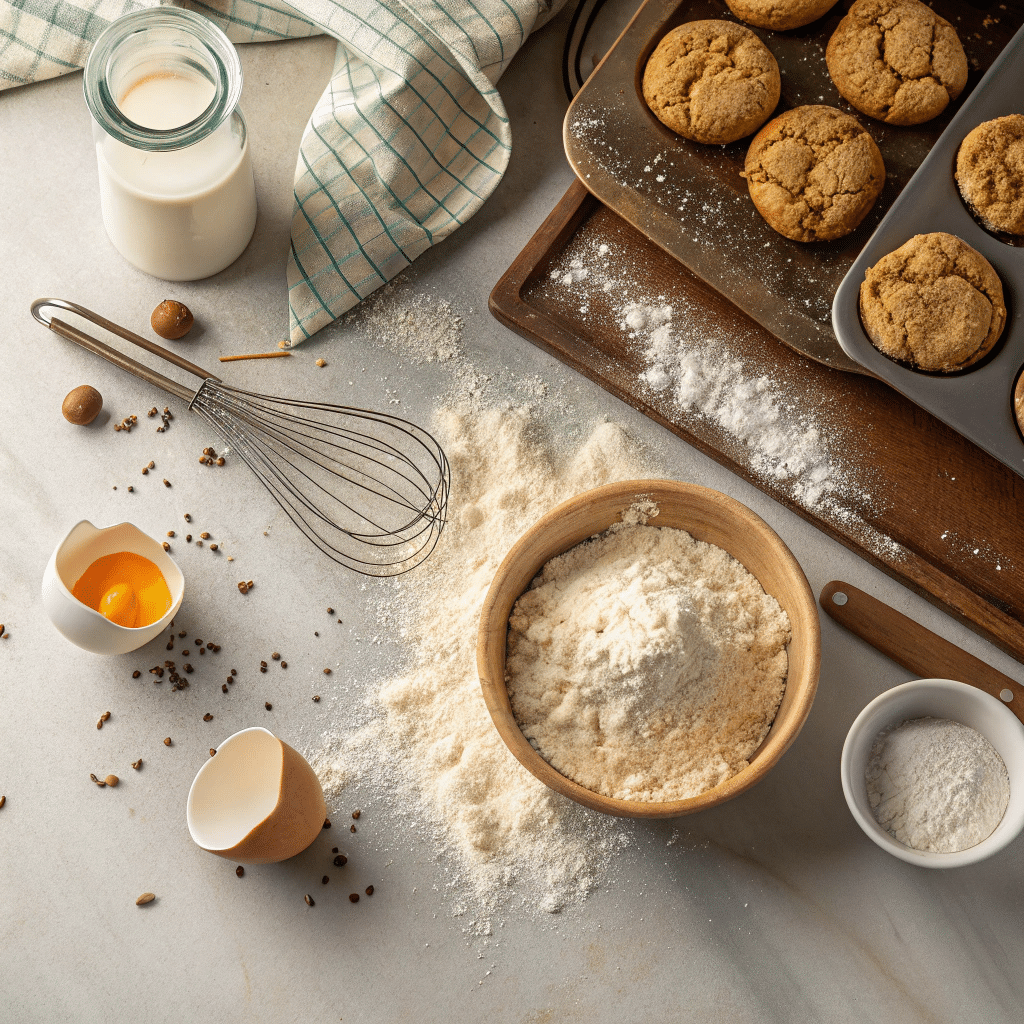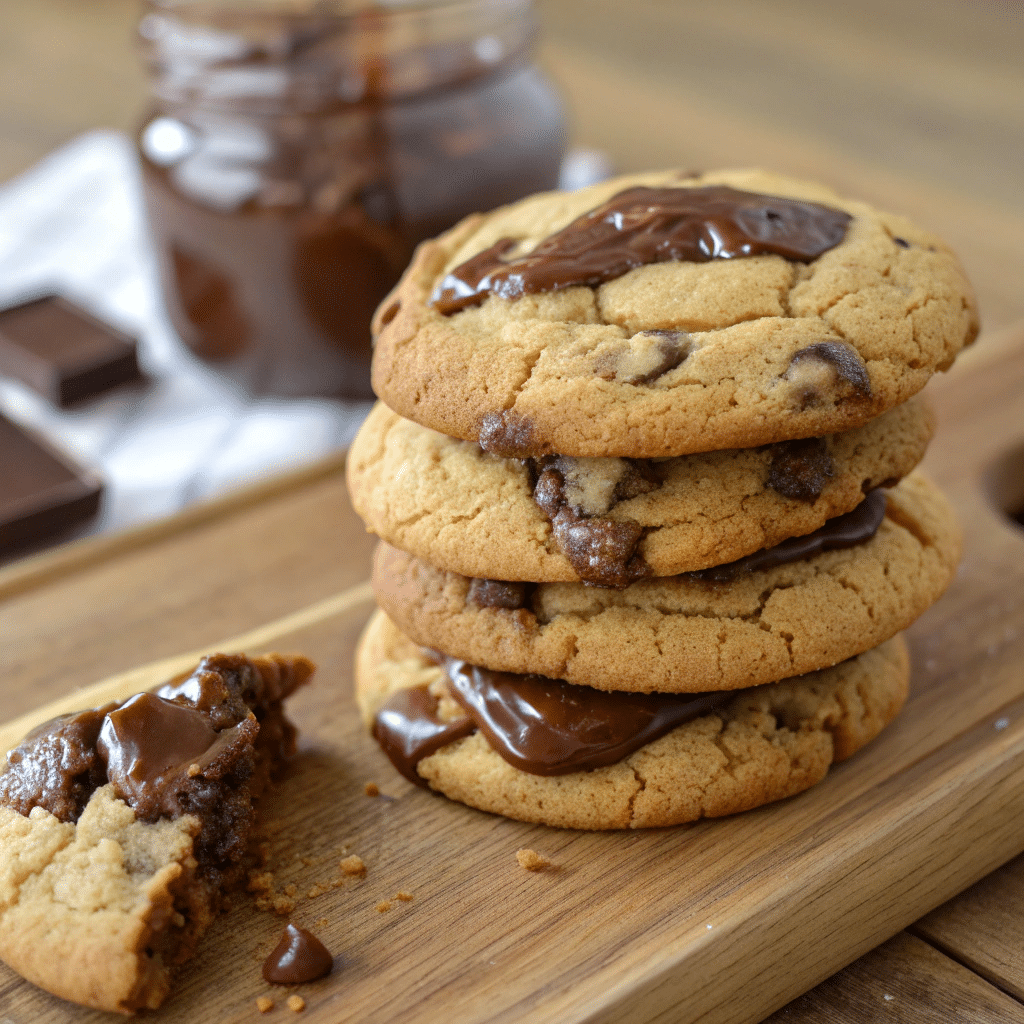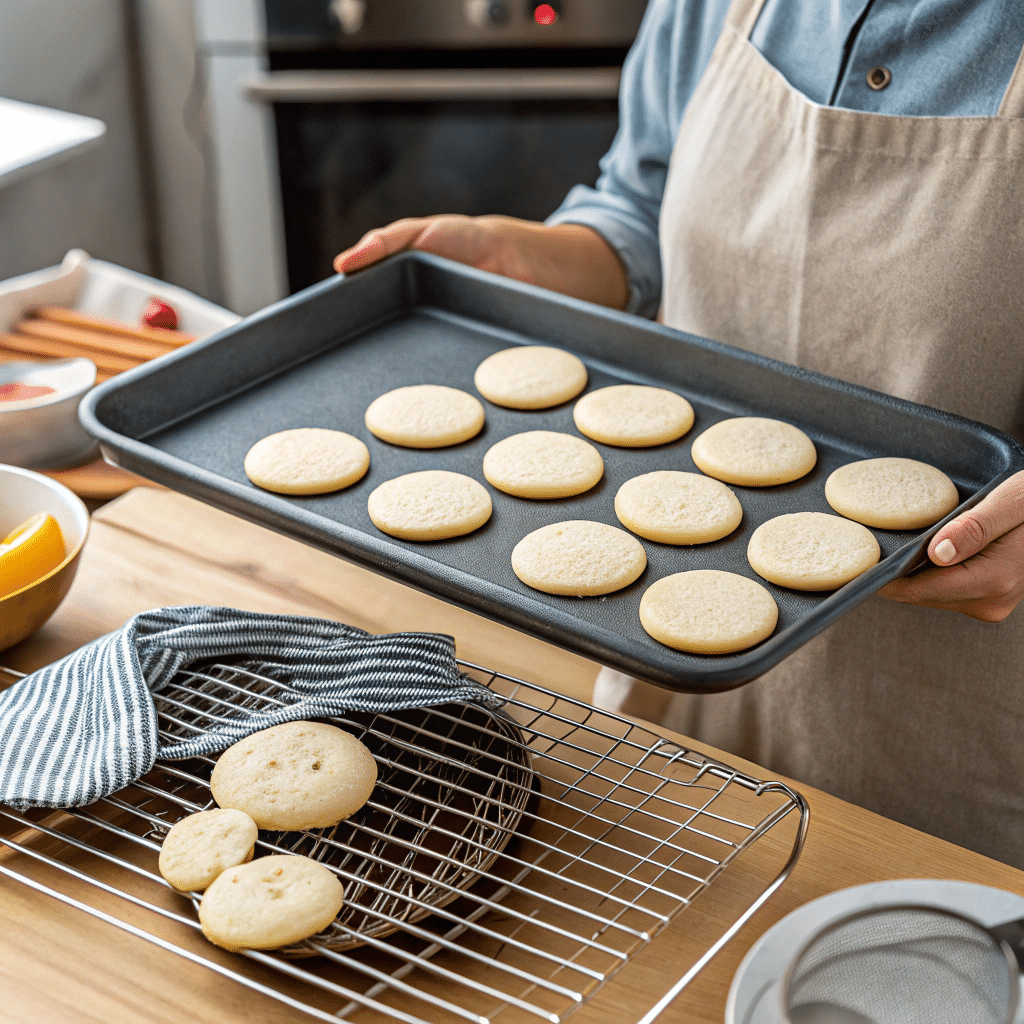Have you ever pulled a tray of cookies from the oven, only to find they’re dry, crumbly, and nothing like the soft cookies you were dreaming of? Don’t worry—you’re not alone. Every baker, myself included, has faced baking fails where the sugar cookie dough didn’t spread, the oatmeal no bake cookies turned rock hard, or the cut out cookies felt more like crackers than dessert.
The good news? Dry cookies aren’t the end of the story. With a few clever cookie hacks, you can fix them, prevent them from happening again, and still get that perfect cookie bite. Let’s dive in and rescue those treats!
Why Do Cookies Turn Out Dry?
Before we fix it, let’s figure out what went wrong. Cookies usually turn dry because of:
- Too much flour – Even an extra tablespoon can suck up moisture and throw off the balance.
- Overbaking – Just two extra minutes in the oven can dry them out.
- Not enough fat or sugar – Butter and sugar don’t just add flavor; they help keep cookies soft and chewy.
- Wrong baking conversions – Measuring cups versus grams can make a big difference.
Think of baking like building a house of cards—small slips cause big collapses. But the upside is, small adjustments can also bring big wins.

Quick Fixes for Already-Baked Dry Cookies
So, you’ve already baked a batch and they’re drier than you’d like. Don’t toss them yet—here’s how to soften hard cookies after the fact:
1. The Bread Trick
Place a slice of fresh bread in your cookie container. The cookies will pull in moisture from the bread overnight, softening beautifully. (Don’t worry—the bread will dry out, not your cookies.)
2. Microwave with Damp Paper Towel
Wrap a cookie in a slightly damp paper towel and microwave it for 8–10 seconds. It’s not a forever fix, but it’s great when you want to eat one right away.
3. Store in Airtight Container
If you leave cookies on the counter, they’ll turn into hockey pucks fast. Keep them sealed tight, and if you’ve already baked a dry batch, add that bread slice or even a few apple slices for natural moisture.
4. Make a Cookie Spread
When all else fails, turn those dry cookies into something new! Blend them into crumbs and mix with cream cheese or nut butter to create a sweet cookie spread. You can also press them into a crust for cheesecake or pie.
How to Prevent Dry Cookies Next Time
The real magic lies in prevention. If you want the perfect cookie every time, these baking tips will save you from future heartbreak:
1. Measure Carefully
Scooping flour directly from the bag packs too much into the cup. Instead, spoon it into your measuring cup and level it off. Or better yet—use a kitchen scale for accurate baking conversions.
2. Don’t Overmix
Overmixing cookie dough adds too much air, making cookies rise and then collapse into dryness. Stir just until ingredients are combined.
3. Watch the Bake Time Like a Hawk
Cookies often look underbaked when they’re actually perfect. If the edges are lightly golden but the center looks soft, pull them out. They’ll finish cooking on the sheet.
4. Add Moisture Helpers
A spoonful of sour cream, cream cheese, or even pudding mix can make a world of difference in keeping cookies soft. Think of it as insurance against dryness.
5. Chill the Dough
Especially for sugar cookie dough and cut out cookies, chilling keeps the fat from melting too fast and helps maintain moisture.
Cookie Hacks by Type

Because not all cookies are created equal, here are some cookie hacks tailored to common favorites:
Soft Cookies
If you want melt-in-your-mouth texture, add a tablespoon of cornstarch to your dough. It keeps cookies tender without affecting flavor.
Sugar Cookie Dough
Swap half the butter for cream cheese. It keeps the dough easy to roll out while locking in softness.
Oatmeal No Bake Cookies
Dry no-bakes usually happen when the mixture cooks too long. If you overboil the sugar mixture, it hardens fast. Next time, pull it off the stove as soon as it starts bubbling.
Cut Out Cookies
These are prone to drying because they’re rolled thin. Keep the dough slightly thicker and don’t overbake. If you’re decorating them later, icing will help seal in moisture too.

Personal Story: My First Baking Fail
I’ll never forget the first batch of cookies I made on my own. I was 12, I rushed through the recipe, and I used “heaping” scoops of flour. The result? A tray of dry, pale disks that could’ve doubled as coasters.
But here’s the thing—those “fails” taught me more about baking than any recipe ever did. Now, whenever I overbake or mis-measure, I just laugh, fix it, and remember that baking is as much about patience as it is about sugar.
Final Thoughts
Dry cookies aren’t the end of your baking adventure—they’re just a little bump in the road. With these baking tips, cookie hacks, and fixes, you can rescue a batch or prevent it from happening next time. Remember, the perfect cookie isn’t about never making mistakes—it’s about knowing how to fix it when you do. And hey, if all else fails, there’s always cookie spread.
So next time you’re staring at a tray of hard sugar cookie dough disasters or crumbly oatmeal no bake cookies, don’t panic. Just smile, grab a slice of bread, and know that you’ve got this.
FAQs: How to Fix Dry Cookies
Q: Can I add moisture back into baked cookies?
Yes! The bread trick or microwaving with a damp towel are quick ways to add moisture.
Q: Why are my cookies flat AND dry?
Probably too much sugar or butter, combined with overbaking. Try chilling the dough next time.
Q: How do I keep cookies soft for days?
Store in an airtight container with a slice of bread or apple. They’ll stay soft and chewy longer.
Q: Can I save dry cookie dough before baking?
Absolutely. Mix in a splash of milk or an extra egg yolk to add moisture.
Q: What’s the best hack for chewy cookies?
Use brown sugar instead of white sugar—it adds moisture and chew.

